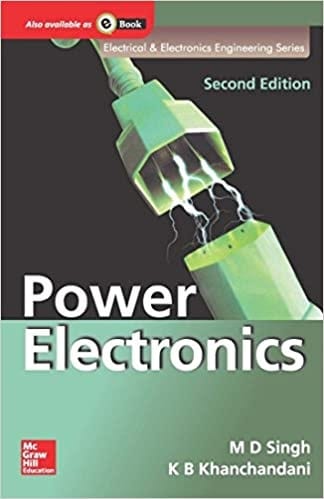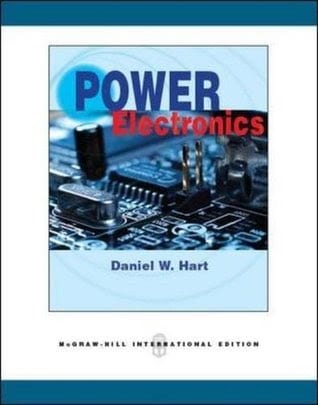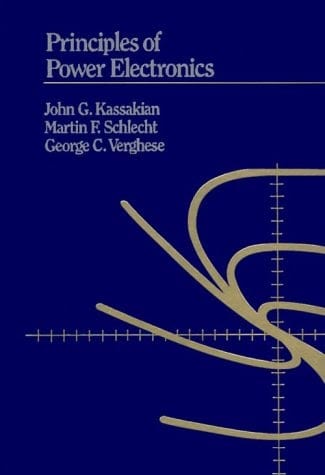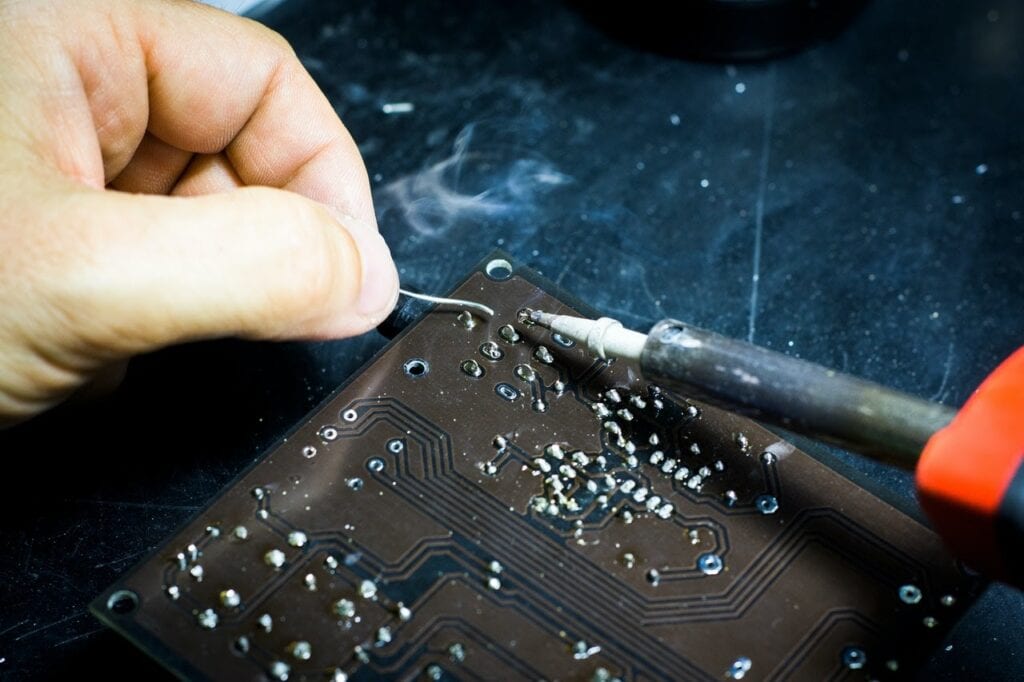Power electronics is one of the more recent additions to the branches of electrical engineering. In simple terms, the field relates to changing electrical energy into various forms.
Power electronics has influenced everyone’s day-to-day life. This field, utilizing converters and capacitors, makes electrical energy usable. So any electrical power you see is likely thanks to advancements in power electronics.
Learning this important skill on your own can be a little challenging. To get started learning about this interesting subject, we’re here to help. Our guide below will answer all your questions and get you on the right path to work in power electronics.
What Is Power Electronics?
Power electronics is the use of solid-state electronics like semiconductors to convert and control electrical power. This conversion is performed with devices such as thyristors, diodes, and power transistors.
Power electronics has a place in many sectors. You can find examples in transportation, power systems, motors, energy conversion, and heating and lighting control. Examples from this type of engineering can be found all around us, from phone chargers to transmission and distribution lines.
What Is Power Electronics Used For?
We live in an era where innovations in technology happen every day. With growing energy demands, renewable sources of electricity like wind and solar are hot topics.
Power electronics is on the case. For example, engineers in this field research ways to convert high-voltage energy in large batteries into low-voltages we can use in our everyday life. This technology is necessary if our world ever transitions to renewable energy.
On this topic, here are some different types of power converters and their uses.
- DC/DC converters. These are used to maintain fixed voltages and for power factor correction. You can find this type of converter in electric vehicles, wind turbines, solar cells, and motor controllers.
- AC/AC converters. These converters are used to change the voltage level or frequency. They can also be used to exchange power in power grids. AC/AC converters are used in light dimmers and power adapters.
- DC/AC converters. Another common name for DC/AC converters is inverters. They are mainly used in renewable energy systems or sustained power sources. Inverters change direct current to alternating current. The most common example of such a converter is the power backup in our homes. It converts direct current stored in a battery into alternating current to power our appliances.
- AC/DC converters. These are also called rectifiers. Rectifiers change the alternating current to direct current. They are widely used in computers and televisions, and for charging energy storage devices.
Power Electronics Skills
Before you master power electronics, there are some skills you need to know. Keep reading for a list of the basics.
Knowledge of EMI/EMC
Electromagnetic interference (EMI) and electromagnetic compatibility (EMC) are two basic but essential skills to master. This topic primarily deals with the wireless transfer of power between devices.
Simulation Tools
Before making a real-life model in power electronics, it is necessary to first create a blueprint of the machine. This process helps you find issues and saves time. Programs like MATLAB and MULTI SIM should be learned for this purpose.
Printed Circuit Board Designing
PCB designing brings your electronics into the real world. It’s a fundamental skill required to pursue a career in any branch of electronics. This skill involves building and testing circuit boards.
Study of Material Science
Electronics and heat have always gone together. The type of material, thickness of wires, and number of turns in a copper coil alter the amount of heat generated by a component. The knowledge of different materials and their performance under certain circumstances is a must.
Learning Power Electronics
There is an ocean of resources available to help you gain knowledge about power electronics. You can opt for a degree from a college or a university or you can take up an online course. You can even refer to countless books to learn power electronics. So don’t wait, keep reading to find out where to start.
How Long Does It Take to Learn Power Electronics?
Power electronics is a vast branch of electrical engineering. It can take a lifetime to master the subject, but you can accumulate enough practical knowledge to start your career in about six months.
However, the time required to learn power electronics depends on your interests. You can delve pretty deep and study aspects of the subject for years. Remember, this is not an easy topic to learn but daily practice will help you on your journey.
How to Learn Power Electronics: Step-by-step
Below are steps that can help you learn power electronics.
- Get familiar with the basics. Power electronics is mostly studied by electrical engineering students. Learn about the basic components of this major like rectifiers, inverters, and MOSFET.
- Choose a top college. If you want to study this subject full-time, then college is the best option. At school, you will study the basics while also learning about subjects related to power electronics. You can also network at university and have better opportunities to be placed at a good company. Of course, choosing to pursue a master’s degree in electrical engineering will always set you apart from the competition.
- Opt for an extra course. For students who want additional resources outside of their program, taking an online or in-person course is a great option. There are plenty of certified courses available that can add significant weight to your portfolio.
- Earn a certificate. Gaining a certificate will help you land a job and prove you have extensive knowledge of power electronics.
- Work experience. To master power electronics, like any field, you need to have practical experience. So test your knowledge with an internship or some other project work.
The Best Power Electronics Courses and Training
There are plenty of online courses and training available to learn something new or sharpen your skills in power electronics.
Best In-Person Power Electronics Classes
We have listed here the best training programs at the top institutions to help kickstart your career in power electronics. Most of them include a certificate of completion, which can be a great addition to your resume.
Power Electronics Certificate
- Provider: Armour College of Engineering, Chicago, Illinois
- Length: 6 months
- Prerequisites: None
- Price: $1,575
This is a certified program where students receive in-depth knowledge about power conversions. It covers various topics including converters, industrial electronics, electric motors, and electric power quality.
This certificate program is useful to managers, engineers, and those seeking a position in any power-conversion related industry.
Power Electronics Program
- Provider: University of Colorado Boulder
- Length: 8 months
- Prerequisites: B.S. degree
- Price: $667
This program is intended for students and engineers who hold a BS in electrical engineering. Students pursue a 30-credit hours Master of Science degree consisting of three courses. Each course requires the completion of 10 to 12 assignments and two exams. This program enables a working electrical engineer to gain the in-depth knowledge necessary to practice power electronics. A 9-credit hour professional certificate is available.
Best Online Power Electronics Courses
There are many courses available online to learn power electronics. These are a great option as they are easily accessible and can be completed on your schedule.
If you are learning mechanical engineering or electrical engineering, you can always pick up an online course to spice up your resume. Generally speaking, you should aim for a course that provides a certificate upon completion.
Here we have compiled a list of the best online courses available for you.
Coursera Power Electronics
- Provider: Coursera
- Length: 4 months
- Price: Free
This program is provided by Coursera and the University of Colorado Boulder. The certificate can be a great addition to your master’s degree in electrical engineering and includes a hands-on project to test your knowledge. You’ll need to complete the project to wrap up your specialization and earn your certificate.
Udemy Power Electronics
- Provider: Udemy
- Length: 1 week
- Price: $12 (with discount)
This course helps you learn about the behavior of inductors, resistors, and other basic components of AC circuits. It will also teach you the software applications MATLAB and SIMULINK. You can create and simulate your circuit model by its end as well as earn a certificate.

"Career Karma entered my life when I needed it most and quickly helped me match with a bootcamp. Two months after graduating, I found my dream job that aligned with my values and goals in life!"
Venus, Software Engineer at Rockbot
Nptel Power Electronics
- Provider: IIT Delhi
- Length: 12 weeks
- Price: Free
This course is offered by the prestigious IIT Delhi, which is ranked 193 in the QS Global World Rankings 2021 list of top colleges. It’s mainly for undergraduate students and instructors and covers various topics related to power processing circuits.
The prerequisites for this course is knowledge of circuit theory, signals, and basic electrical engineering. This course is free but if you want a certificate you have to sit a proctored exam. There are several criteria you must meet to get the certificate, including scoring 75% in the exam.
Books to Refine Your Knowledge of Power Electronics
One of the best ways to learn and expand your knowledge about power electronics is to read books. Pouring over text can help you analyze the topic differently. Luckily, there are many books available to learn more about power electronics.
Some of the best books are listed below.
Power Electronics, M.H Rashid

This book by M.H. Rashid covers fundamental to advanced-level topics on various semiconductor devices. It is a very useful book if you want to gain knowledge about devices like BJTs, SITs, and MCTs.
Power Electronics by Daniel W. Hart

This book presents power electronics in a simplified format. It covers all topics in power electronics required to be learned by an engineering student.
The explanations and derivations are compact and concise. Several tests are also provided.
Principles of Power Electronics

The text covers basic concepts, techniques, and methods necessary to learn power electronics. The author’s innovative examples in solving power electronics problems make this book stand out among the competition.
Best Power Electronics Resources
Besides training, courses, and books, there are other resources available to you related to power electronics. These resources will help you increase your knowledge and enhance your skill set.
Power Electronics Society
The PEL is the fastest-growing technical society of the Institute of Electrical and Electronics.
It organizes several workshops and conferences in the field of power electronics. You can even send your research work and projects to them to get featured. Join this community and enhance your skills in the field of power electronics.
Power Electronics – MIT
Massachusetts Institute of Technology has provided this course on their platform OpenCourseWare.
It includes a series of lectures accompanied by assignments. You can even find project work and other related resources with it. This material is totally free for download.
Power Electronics Tutorials
The following sites provide free tutorials for those eyeing to enter the field. Compared to some of the courses discussed above, these tutorials are somewhat more informal but are great sources of knowledge nonetheless.
Tutorialspoint.com
This power electronics tutorial introduces basic concepts: power semi-conductor devices, phase-controlled converters, and DC/DC converters, to point out a few. This tutorial targets electrical engineering students and is a good resource to expand their knowledge.
ElectronicsTutorials
This site contains dozens of free tutorials, covering AC circuits, capacitors, diodes, and much more. These tutorials are great for students as well as for professionals looking for a refresher.
Electronicshubs.org
Electronicshubs.org is a platform that shares power electronics information for free. Here, you will find step-by-step methods, DIY processes, guides, and a great tutorial on capacitors.
Should you Study Power Electronics?

Power electronics is emerging as one of the most popular focuses in engineering. An electrical engineering degree in power electronics can be difficult, but also rewarding.
You should only study power electronics if you have an interest in learning electrical circuits and their various components. You’ll be working with these a lot in your new career.
If you want to contribute to innovations in this large field, then studying power electronics is the right choice. There are numerous job opportunities and that number is very likely to increase in the future.
About us: Career Karma is a platform designed to help job seekers find, research, and connect with job training programs to advance their careers. Learn about the CK publication.



